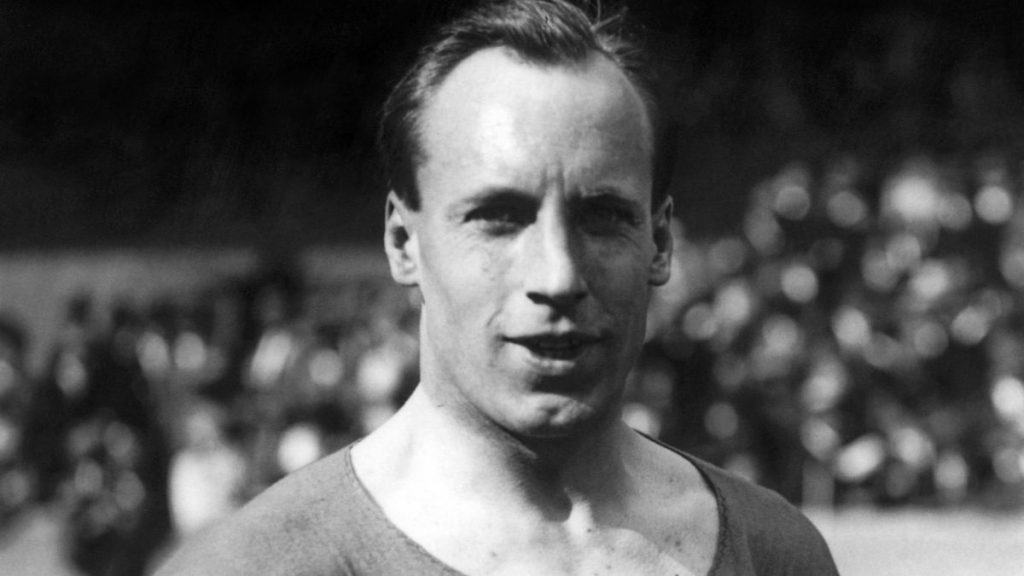
This summer’s Olympic games will mark the 100th anniversary of the incredible performance and shocking faith of Scottish Gold Medalist Eric Liddell, whose story was immortalized in the 1981 movie Chariots of Fire.
A devout Christian and son of Scottish Presbyterian missionaries to China, Liddell was an athlete of tremendous promise from his youth. In addition to running, Liddell was selected to play for Scotland’s international rugby team seven times. Alongside his rigorous athletic training was his rigorous faith. In particular, Liddell had a practice of resting on the Sabbath, which meant never racing on Sundays.
Liddell’s athletic prowess eventually took him to the 1924 Summer Olympics in Paris, France. That year, when the schedule of events was released, Liddell’s best race—the 100-meter dash—was scheduled for a Sunday. But because the race was scheduled on the Sabbath, Liddell dropped out.
As one of his peers recalled, Liddell’s decision “caused tremendous furore amongst many people, particularly with the newspapers and journalists,” with some even calling him “a traitor to his country.”
Nevertheless, the Scottish runner refused to race on Sunday, and instead ran in the 200-meter and 400-meter events, races not scheduled on a Sunday and for which he had not trained. Incredibly, he took bronze in the 200-meter and gold in the 400-meter, finishing five meters ahead of the pack.
Liddell saw his performance as an act of his faith in Christ. In his own words: “When the gun goes, I go as fast as I can, and I trust to God that I’ll have the strength to do the second half.” Liddell’s performance showed that excellence in one’s craft can be a witness for Christ, and his decision to change races bore witness to the fact that neither international fame nor Olympic gold were worth denying the Lord. In fact, his choice pointed to a treasure more precious than Olympic gold, the immeasurable riches of eternal life in Jesus Christ.
Liddell’s witness and renown did not end at the 1924 Olympics. As Liddell once said, God had not only “made [him] fast;” He “made [him] for China.” Following athletic success, Liddell returned to China as a missionary. There he bore witness to Christ by preaching the Gospel and teaching at a college. When Japan invaded China in 1937, Liddell decided to remain in the country while his pregnant wife and two children evacuated. In time, the Japanese placed him in an internment camp, where he faithfully served Christ and others before dying of a brain tumor in 1945.
A century later, Liddell’s witness and legacy finds new traction with today’s Olympians.
Other devout athletes describe faith as strengthening their performance rather than undermining it. In 2020, Beatie Deutsch, an Orthodox Jewish runner, opted not to compete in the women’s marathon at Tokyo Olympics because it was scheduled on Saturday. As she described it: “Most people would see sports and religion as very separate, but I see a big overlap. Everything we have is a gift from God—He’s the one who’s given me this strength.”
American gold medalist in women’s 400-meter hurdles Sydney McLaughlin-Levrone found direct inspiration from Liddell’s historic decision to glorify God. In a space where it would be so easy to cave to the pressures of performance, McLaughlin-Levrone’s faith liberates her from doubt and fear:
For a long time, my identity was in track and field. But I realized that first and foremost, I’m a child of God. It set me free to run the race God has set out for me to run.
Liddell’s courage to honor the Lord has left a lasting impact. May his life and legacy continue to inspire new generations of Christians to courageously live out their faith even when it’s costly.
This Breakpoint was co-authored by Jared Hayden. If you’re a fan of Breakpoint, leave a review on your favorite podcast app. For more resources to live like a Christian in this cultural moment, go to breakpoint.org.
Copyright 2024 by the Colson Center for Christian Worldview. Reprinted from BreakPoint.org with permission.

